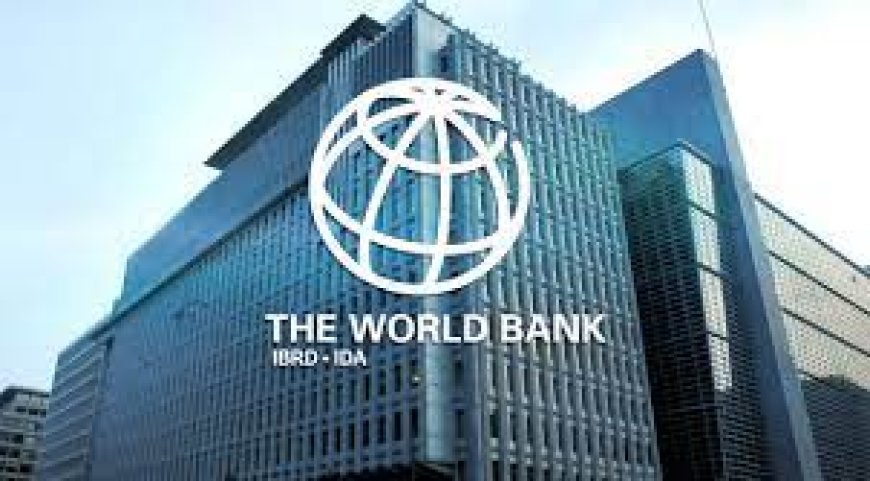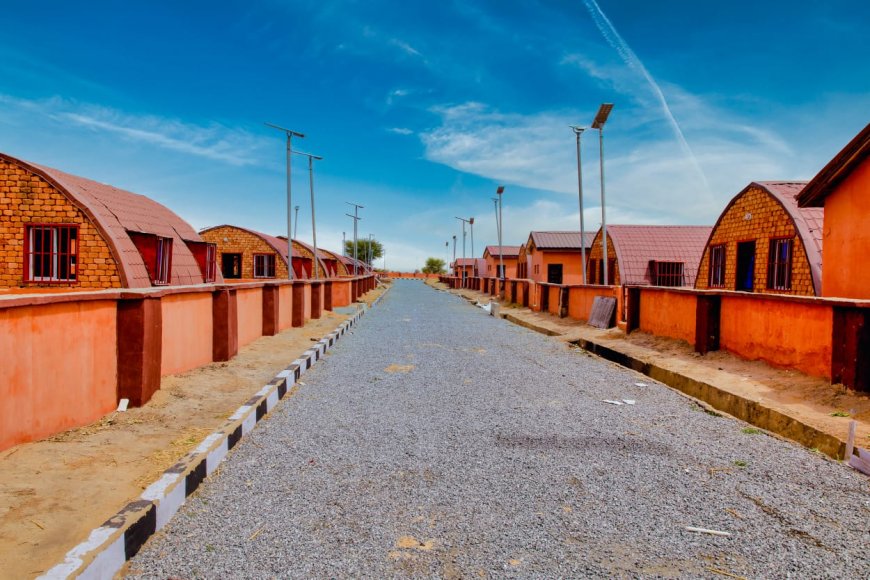One Billion People On Brink Of Hunger Globally – World Bank
Over one billion people are on the brink of hunger globally, a report in the newsletter of the World Bank has stated.

Over one billion people are on the brink of hunger globally, a report in the newsletter of the World Bank has stated.
Majority of the affected people are in the low and middle income countries of Africa, Asia, Latin America and the Middle East.
Quoting the July 2023 edition of the Agricultural Market Information System (AMIS) Market Monitor, the Bank noted that geopolitical tensions that threaten the Black Sea Grain Initiative, including the collapse of the Nova Kakhovka dam in Ukraine were some of the factors that contributed to food shortages being experienced in some parts of the globe.
It also cited the damage to the ammonia pipeline between Russia and Ukraine.
“The flooding and disruption of irrigaton, along with the demand to reopen the pipeline, are increasing tensions and could lead to termination of the agreement, ultimately reducing Black Sea exports and undermining Ukraine’s production incentives.
“On June 6, 2023, the catastrophic collapse of the Kakhovka dam in southeastern Ukraine resulted in extensive flooding, posing a threat to drinking water supplies and raising concerns for agricultural areas that rely on the reservoir for irrigation. The Kakhovka dam and reservoir are crucial for agriculture, providing water through major irrigation canals to more than 500,000 hectares of farmland.
“The reservoir irrigates vast croplands that produce grains, oilseeds, vegetables, and fruits. The dam’s collapse has caused significant flooding downstream, affecting more than 40,000 hectares of land and numerous towns and villages. Although the flooded agricultural area is relatively small, disconnection of the irrigation canals upstream has led to water scarcity for summer and winter crops, with implications for Ukraine’s agricultural exports,” the report said.
The Bank also noted that domestic food price inflation remains high around the world. “Information from the latest month between February 2023 and May 2023 for which food price inflation data are available shows high inflation in most low- and middle-income countries, with inflation higher than 5% in in 61.1% of low-income countries, 79.1% of lower-middle-income countries, and 70% of upper-middle-income countries, with many experiencing double-digit inflation.
“In addition, 78.9% of high-income countries are experiencing high food price inflation. The most-affected countries are in Africa, North America, Latin America, South Asia, Europe, and Central Asia. In real terms, food price inflation exceeded overall inflation in 79.8% of the 163 countries where data is available.”
Listing some of the steps it has taken to ameliorate the situation, the World Bank said in April last year, it announced plans to make available $30 billion over a period of 15 months, including $12 billion in new projects to tackle food security crisis.
“The financing is to scale up short- and long-term responses along four themes to boost food and nutrition security, reduce risks, and strengthen food systems: (i) support producers and consumers, (ii) facilitate increased trade in food and trade inputs, (iii) support vulnerable households, and (iv) invest in sustainable food and nutrition security.
“The Bank has achieved its target of making $30 billion commitment for food and nutrition security response. Between April to December 2022, the Bank’s food and nutrition security commitments in new lending have passed the $12 billion mark – with almost half for Africa, which is one of the hardest hit regions by the food crisis.
“Some examples include: The $766 million West Africa Food Systems Resilience Program is working to increase preparedness against food insecurity and improve the resilience of food systems in West Africa. The program is increasing digital advisory services for agriculture and food crisis prevention and management, boosting adaption capacity of agriculture system actors, and investing in regional food market integration and trade to increase food security. An additional $345 million is currently under preparation for Senegal, Sierra Leone and Togo.
“A $150 million grant for the second phase of the Yemen Food Security Response and Resilience Project, which will help address food insecurity, strengthen resilience and protect livelihoods. $50 million grant of additional financing for Tajikistan to mitigate food and nutrition insecurity impacts on households and enhance the overall resilience of the agriculture sector.
“A $125 million project in Jordan aims to strengthen the development the agriculture sector by enhancing its climate resilience, increasing competitiveness and inclusion, and ensuring medium- to long-term food security. A $300 million project in Bolivia that will contribute to increasing food security, market access and the adoption of climate-smart agricultural practices.
“A $315 million loan to support Chad, Ghana and Sierra Leone to increase their preparedness against food insecurity and to improve the resilience of their food systems.
A $500 million Emergency Food Security and Resilience Support Project to bolster Egypt’s efforts to ensure that poor and vulnerable households have uninterrupted access to bread, help strengthen the country’s resilience to food crises, and support to reforms that will help improve nutritional outcomes.
“A $130 million loan for Tunisia, seeking to lessen the impact of the Ukraine war by financing vital soft wheat imports and providing emergency support to cover barley imports for dairy production and seeds for smallholder farmers for the upcoming planting season.
“The $2.3 billion Food Systems Resilience Program for Eastern and Southern Africa, helps countries in Eastern and Southern Africa increase the resilience of the region’s food systems and ability to tackle growing food insecurity. The program will enhance inter-agency food crisis response also boost medium- and long-term efforts for resilient agricultural production, sustainable development of natural resources, expanded market access, and a greater focus on food systems resilience in policymaking.”
To prevent a worsening of the food and nutrition security crisis, the Bank said urgent actions are required to rescue hunger hotspots, facilitate trade, improve the functioning of markets, and enhance the role of the private sector, and reform and repurpose harmful subsidies with careful targeting and efficiency.
Culled From Vanguad Newspaper
What's Your Reaction?





























































